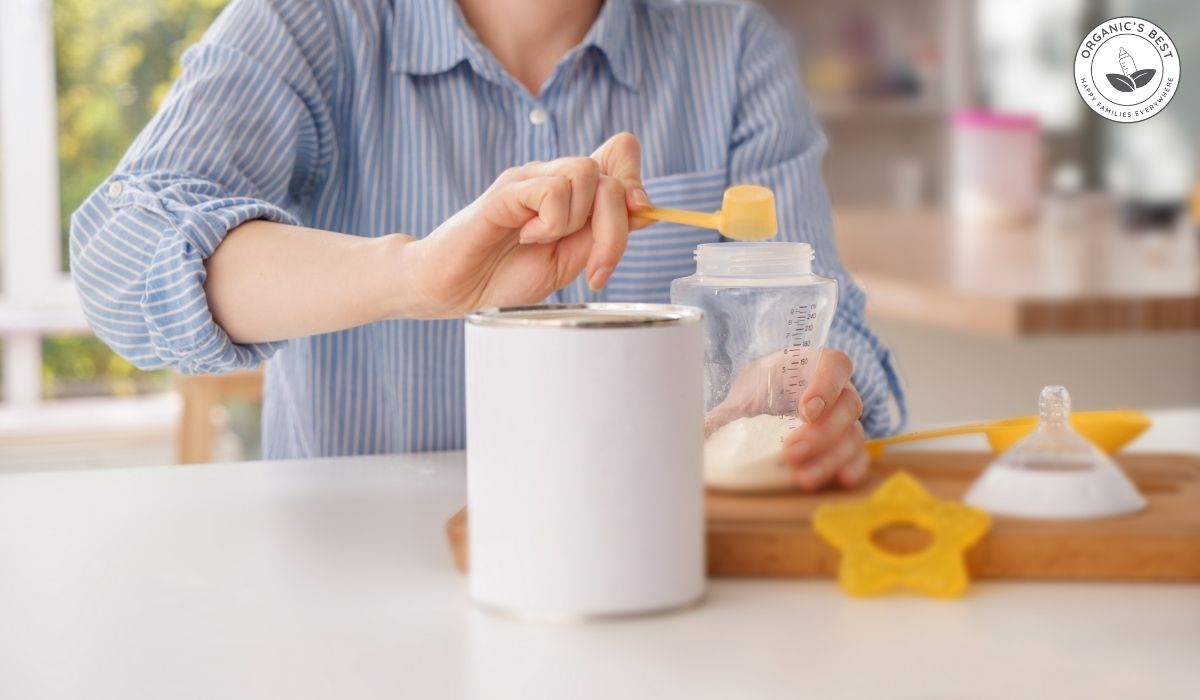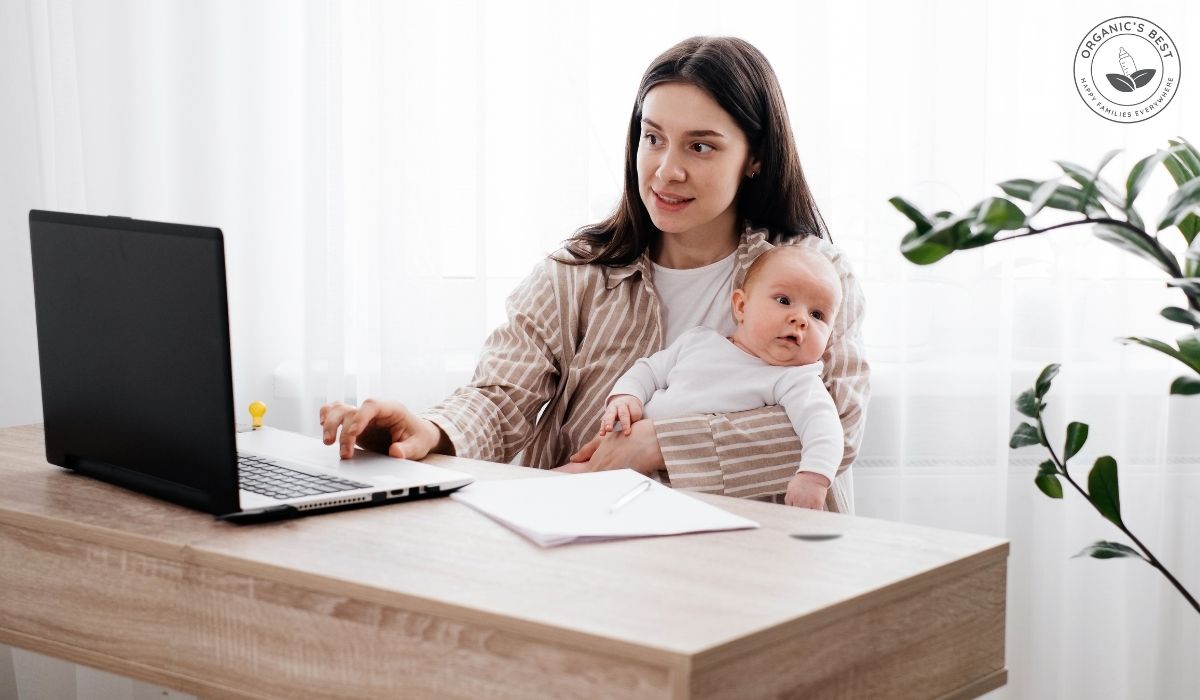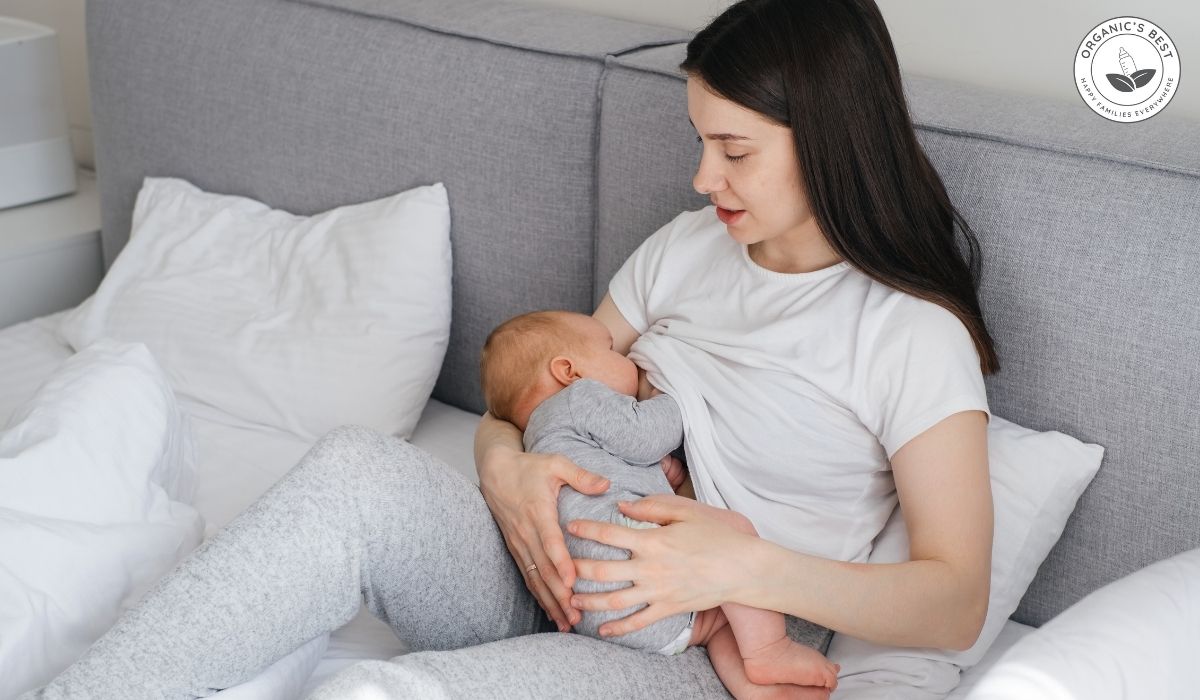Click to Get 2 FREE Boxes/Cans
Only New Customers! Click HERE to Get 2 Extra Boxes/Cans for Free With Your First Order.
BABY FORMULA
Offering new parents top-quality European infant formula from renowned brands like HiPP, Holle, Kendamil, and more. If you’re uncertain about which product to choose, our Formula Finder can help you make the best decision for your baby.
Baby Food
Offering new parents a premium selection of European baby foods, including jars, pouches, cereals, and snacks from esteemed brands like HiPP and Holle.
Formula Storage: How Long is Formula Good For?
by Agustina Fernandez May 15, 2024 7 min read

For parents who rely on bottle feeding to nourish their little ones, there's a bit of a learning curve when it comes to baby formula preparation and storage. As such, one of the most common queries new parents have is ''how long is formula good for?''.
Although this comes across as a simple question, the answer isn't so straightforward. The timespan can vary between a couple of hours to a couple of days, depending on factors like, if your baby has started drinking their prepared formula bottle or whether the baby formula is still unmixed.
With your little one's well-being in mind, come along with us as we explain the essential rules of formula feeding. By the end of this article, you'll be safely storing, mixing, and serving bottles like a pro!
Table of Contents
- How Long Does Unopened, Unmixed Formula Last?
- How Long is Formula Good for Once Opened?
- How Long is Formula Good for After Being Mixed?
- How Long is Formula Good for in Bottle?
- How Long is Formula Good for in the Fridge?
- How Long Does Baby Formula Last at Room Temperature?
- Can I Prepare Formula Ahead of Time?
- Can I Save Leftover Formula to Give to My Baby Later?
How Long Does Unopened, Unmixed Formula Last?
A safely stored unopened formula container lasts anywhere between several months and up to two years. The expiration date will depend on the type of formula you choose. For instance, powdered formula is known to keep longer than ready-to-feed liquid mixtures.
However, all formula manufacturers carefully craft and package their products to ensure a stable shelf life. This means you can stock up your supply without worrying that the formula will go bad before you get to use it. With that said, it's important to make sure that you store the formula properly.
Here are Some General Rules for Storing Baby Formula Safely:

-
Store your baby's formula in a cool and dry place indoors, away from any source of heat or sunlight.
-
Don't leave your baby's formula in the car or garage, even if the packaging is sealed.
-
Do not store unopened containers of formula in your refrigerator.
-
Never freeze formula.
Storing formula properly can guarantee it will remain fresh and safe until reaching the expiration date on the packaging!
How Long is Formula Good for Once Opened?
Most baby formulas need to be used within 30 days after the container is opened. However, it's important to always follow the manufacturer's specific instructions, as some formulas may have a shorter shelf life than others.
A key factor in how long a formula lasts is whether you use a powder formula or a liquid formula. We'll discuss this in our next section, but before that, here are some storage tips to keep in mind.
Beyond storing the formula container in a safe place, it's important to seal the lid tightly after each use. Another useful practice to get into the habit of is writing the date of opening on the lid of your infant formula containers. This way, you'll know exactly how long you have to use the formula until it spoils!
Now, let's figure out how long you have to use the formula, depending on which type you choose!
Powdered Formula
A container of unmixed powdered baby formula typically has a 30-day shelf life after it's been opened, although the exact duration depends on the manufacturer.
Learn more: How to Tell if Powdered Formula is Bad
The Shelf Life of Our Powdered European Formulas After Opening:
-
HiPP: 3 weeks
-
Holle: 2 weeks
-
Lebenswert Bio: 2 weeks
-
Kendamil: 4 weeks
-
Jovie Goat: 4 weeks
-
Jovie Cow: 3 weeks
-
Nannycare: 4 weeks
-
Löwenzahn Organics: 2 weeks
-
Bébé M: 3/4 weeks
Ready-to-Feed Infant Formula
Opened liquid concentrate formula and ready-to-feed bottles should be kept in the fridge for no longer than 48 hours for most brands, but for others, they last as little as 24 hours in the fridge. Similarly to powder formula, it's best to write the date but also the time on the bottle after you first open it to make sure your ready-to-use formula doesn't spoil.
The Shelf Life of Our Liquid European Formulas After Opening:
-
HiPP Ready-to-Feed: 24 hours
How Long is Formula Good for After Being Mixed?
A bottle of mixed formula that your baby has yet to begin drinking lasts up to 2 hours at room temperature. The American Academy of Pediatrics notes that mixing formula in advance is safe when stored in the fridge for up to 24 hours.
Prepared baby formula is best kept in refrigerators that are 40°F (4.4°C) or cooler. But make sure it's not too cool; if you accidentally freeze the formula, it can change its texture. And to put any myths you may have heard to rest, the freezing of formula does not help formula last longer. Finally, remember that unmixed formula has no place in your fridge and should not be stored there!
How Long is Formula Good for in Bottle?
Unused prepared formula in a bottle follows the same rules as any other mixed formula; it's safe for two hours at room temperature or 24 hours in the fridge. However, if you're dealing with ready-to-feed formula or prepared liquid concentrate, these bottles can usually be kept in the fridge for up to 48 hours.
Remember to follow the preparation and storage instructions on the packaging of your baby's specific formula, as guidelines vary between manufacturers.
How Long is Formula Good for in the Fridge?
A bottle of formula that hasn't been used can stay in the fridge for up to 24 hours.
Remember, storing unused bottles in the fridge is okay, but you should never freeze the formula as this can degrade its nutrients and change the texture.
If you have doubts about how long formula can stay in the fridge, it's best to consult your child's pediatrician. A medical professional will be able to answer all of your questions and guide you through the many rules of safe formula preparation and storage.
How Long Does Baby Formula Last at Room Temperature?
As a general rule, if you let untouched and unheated infant formula sit at room temperature, it should be used within 2 hours. The standard is typically the same for both powdered formula and ready-to-feed formula.
For those of you with babies who like warm formula, the guidelines are a little less forgiving. Untouched formula that has been heated should be fed to your baby within 1 hour after mixing.
Moreover, many of the European organic formulas that we offer in our shop are only considered safe to use within 1 hour after being mixed and sitting at room temperature. So, be sure to check the manufacturer's specific guidelines.
Why Does Prepared Formula Expire After 2 Hours at Room Temperature?
Milk and milk-based products like baby formula are notorious for being able to grow potentially harmful bacteria fast. That means if you leave your baby's bottle at room temperature past the two-hour mark, you're creating a favourable environment for bacterial growth, which can be dangerous to your baby's health.
Can I Prepare Formula Ahead of Time?
If you must make a bottle in advance, it's okay to keep prepared formula in the fridge and use it within 24 hours.
A good strategy for storing formula safely for later use is to place the bottles closer to the back of the fridge, which tends to stay cooler than the door compartments. You may wish to arrange the bottles in such a way that the newest bottles are behind the older bottles up front; that way, you're always using the oldest bottle first.

The downside to preparing bottles in advance is that while it may very well make your life easier, it also comes with an increased risk of bacterial contamination. Ultimately, the safest choice you can make is to prepare your baby's bottle fresh for every feeding. However, we understand that preparing formula in advance can be a huge time saver, so if you want the best of both worlds, try out our feeding hack below!
Hack for Nighttime Bottle Feeding
If you want the convenience of preparing baby formula in advance and you prefer that your baby drinks only fresh formula, you can still make things easier for those late-night feedings. The trick is setting up a bottle feeding station next to your bed. You can use a tray or even your bedside table to have easy access to everything you require when formula feeding in the middle of the night.
Here's a list of supplies you'll need:

• Pre-measured and portioned out powdered infant formula or liquid concentrate.
• Bottles pre-filled with safe water (you can boil and cool it beforehand). If your little one prefers warm formula, you can keep a thermos with safe, warm water instead.
• A nightlight so you can see what you're doing while preparing formula.
• Burp cloths in case of spit-up.
• Optional: Water and snacks for you or your partner if you take turns during the night feedings (because parents get hungry too!).
Simply set up your station with the above supplies and mix your portioned-out water and formula powder/liquid concentrate as needed! These tips can also be helpful when traveling with baby formula powder.
Can I Save Leftover Formula to Give to My Baby Later?
No, it's crucial to discard any leftover formula your baby doesn't finish within 1 hour of feeding. It is absolutely not safe to reuse unfinished formula leftover from feeding and it should not be saved in the refrigerator or reheated for later.
The reason for this is that the mixing of saliva from your baby's mouth with infant formula can cause harmful bacteria to grow in your baby's bottle. Plus, milk-based food products, like infant formulas, are particularly infamous for speedy bacterial growth.
The best practices for preparing infant formula are to always thoroughly clean and sanitize the bottle before using it for feeding, and when it comes to unused formula after a feeding, the only place it belongs is down the drain!

Conclusion: How Long is Baby Formula Good For?
We know that's a lot of information to digest, but now you don't have to wonder how long is formula good for. The most important things to remember are to always follow the preparation instructions for your baby's formula exactly, store it safely, never reuse leftover formula, and don't use infant formula past its expiration date. If you're ever unsure about the best practices for your formula-fed baby, be sure to consult your pediatrician. Happy feeding!
|
Disclaimer: Please be aware that this information is based on general trends in babies, and it is not medical advice. Your doctor should be your first source of information and advice when considering any changes to your child's formula and when choosing your child's formula. Always consult your pediatrician before making any decisions about your child's diet or if you notice any changes in your child.
Breastfeeding is the best nutrition for your baby because breast milk provides your child with all the essential nutrients they need for growth and development. Please consult your pediatrician if your child requires supplemental feeding.
|
Agustina Fernandez
Dr. Agustina Fernandez earned her medical degree from the prestigious Universidad Nacional de Córdoba, Argentina. With a deep-rooted passion for pediatrics, Dr. Fernandez is currently on the path to specializing in children's healthcare. Recently, she has delved into the vital field of infant nutrition. Her research interests include breastfeeding, infant formula, and baby food in little ones’ formative years. Dr. Fernandez's commitment to this area of study underscores her dedication to ensuring the health and well-being of children from their earliest days.
Leave a comment
Comments will be approved before showing up.
Also in Organic Infant Nutrition and Health Blog

10 Winter Activities for Kids and Toddlers
by Agustina Fernandez January 06, 2026 8 min read
Read More
How to Choose The Best Infant Formula: A Guide to EU Organic Formulas
by Agustina Fernandez January 05, 2026 14 min read
Read More
Best Formula for Breastfed Babies 2026 Guide
by Agustina Fernandez January 05, 2026 15 min read
Read More
Reviewed by Dr. Po-Chang Hsu, MD, MS
-

Dr. Po-Chang Hsu: Medical Reviewer of Organic's Best Blog
Dr. Hsu received his medical degree from Tufts University in Boston, Massachusetts, and holds a Master’s of Science degree from both Harvard University and Tufts University.
